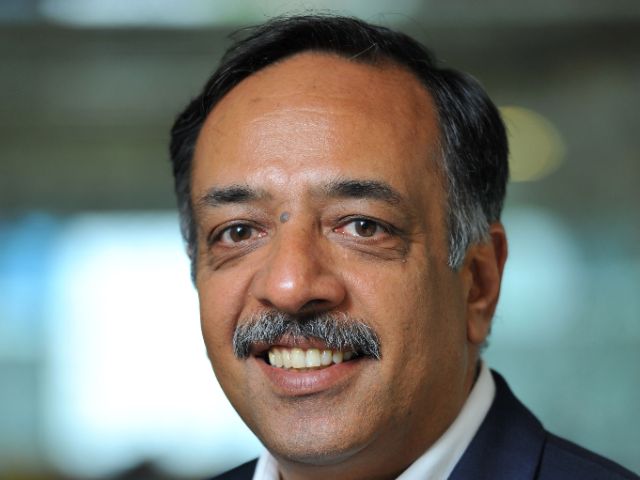German software major, SAP is going through a transformation where one of the key elements of the SAP strategy, includes the partners. The company aims to deliver the Intelligent Enterprise to its customers and as a part of this, collaboration with partners is significant. The other component is that, it is moving towards cloud solutions and developing new products.
With this emphasis on the cloud, SAP is now moving into new paradigm with its partner. The company is going aggressive in growth verticals like for telecom, banking and insurance. “We are mobilising our partners to take all the IP that we are developing for the other verticals and reapply it to cloud. It is a call for action for all the partners to package its IP, which they have been acquiring over so many years on premise and then call for SAP to develop this IP for the cloud environment. “We are very aggressively driving this as you will see this year. We have ‘Solution Centres’, in every country- there is one in India, and these solution centres actually help our partners package the IP and build those packaged solutions for cloud in different industries,” says Karl Fahrbach, Chief Partner Officer – Global Partner Organisation, SAP.
Moving ahead
SAP has recently launched an initiative called Next Generation Partnering. “That is basically modernising all our partner models to make sure that our partners are equipped with tools and methodologies to be ready for the cloud. It is to make sure that SAP helps the partners to move from an on-premise environment, to an environment where cloud is the key. It been driving this initiative since last year to encourage the partners more and give them more importance,” states Fahrbach.
The company’s emphasis is on three key pillars to make the partners ready for the cloud. The first is what is called ‘Partner Innovation’ where the partners are helped to innovate with SAP and monetise. Looking at the cloud solutions, partners are always required to extend, augment and cater to the specific market needs. The other pillar is economics, whereby the need to maintain the margin and profitability of the partners is realised. The focus is to bring down the cost of partnership, by lowering the cost of their testing and development licenses, and enable learning by giving them more access, etc. As a part of this economics pillar, there is a huge emphasis also on the quality of the partners. The third pillar is partnering experience, whereby engagements between SAP and the partners in cloud and SAP are being modernised.
“In order to do that, we are looking at the experience. We are constantly asking partners to give us feedback on how they feel being a part of SAP ecosystem, especially with the recent acquisition of Qualtrics which enables us to understand the sentiments of the partners. Apart from physical feedback through surveys and feedback with the help of technology, we have several local, regional and global councils to provide feedback and discuss the approach. We not only tell the partners what we are doing, but also ask them for feedback, and we involve them as a part of the decisions that we make from a partner perspective. Furthermore, as part of this experience pillar, we are looking at improving the overall experience in the cloud to make it easier for the partners to do business with SAP,” says Fahrbach.
Along the lines of cloud, SAP is running Cloud Transformation Roadshows. It starts at the CEO level and graduates down to the delivery centre, the sales and development level and to the services level to visualise how the companies’ transformation to the cloud would look like.
Evolving role of channel partners
The silos of just being a service provider, distributor, system integrator or a run partner are collapsing. “It is a global phenomenon, and very much evident in India. For example, our partnership program is structured around sales, service, build and run. This program itself might undergo some changes where we probably bring down some silos, but rarely, you will find a partner who is only doing one off. Most of them are doing all four. All of them at least are doing the two or three. While you may want to still call it channel, now even the channel partners being vast, they are hosting, building on top and running SAP solutions, because they want to do a value-added reselling. They are building IP, either to act as an accelerator, or as a differentiator, so all of them are getting into IP,” says Nandagopal Prasad, SVP Head of Partner Innovation Lifecycle Services, SAP.

Today the channel partner is looked upon to do beyond just selling and implementing. It should be capable of building IPs to build on future innovation and create the value addition. It should maintain long-term relation with the customers and add constant value and renew the contracts. The expectation is of a whole new role from the partners.
“In the past, we were putting those partners in boxes. We were putting the SAP glasses, and we were calling them an SI or a VAR and, or an ISV. That is gone, because all those partner categories do more than they were doing before. Probably in the past, an ISV would just be an ISV, and a reseller partner would just do reselling. Now these lines are blurring, and they have started to do everything from selling to building IP, from services to looking at the entire customer life cycles. That is why, from an SAP perspective we are reacting to this as well. This year we are going to be launching a new program- an evolution of a partner edge program which we have today. You are not the SI or ISV anymore, you are going to be a partner of SAP, and we are going to recognise the full value of you as a partner of SAP,” says Fahrbach.
Emerging tech
Innovation and understanding of cutting-edge technologies is imperative. “What I see in India, as well as globally is that, to survive in the future, the partners will have to invest in innovation. They need to embrace the emerging technologies. Hence, we are working with analyst firms like IDC and Gartner to understand the future trends and analyse the profit and loss. If they want to maintain the levels of profitability and increase margins in the future, they need to invest in big innovation. This is going to be one of the key components that we are going to launch in the next few years to help those channel partners to understand that it is not only about selling/ providing services anymore, it is about having innovation, sales and services to complete the picture and be successful,” says Fahrbach.
“We have partners in India who work across all the industries and line of business that SAP works on. The common tying thread is building on the SAP cloud platform. It is the platform of choice. Also, the newer technologies like artificial intelligence, machine learning, blockchain are delivered as a part of the cloud platform. We are all the time co-innovating with partners who are already using these technologies. We just finished an agriculture based project that used machine learning. We are currently working on cross company reconciliation which is using blockchain. The partners in India are already thinking and using these new technologies,” informs Prasad.
If you have an interesting article / experience / case study to share, please get in touch with us at [email protected]














